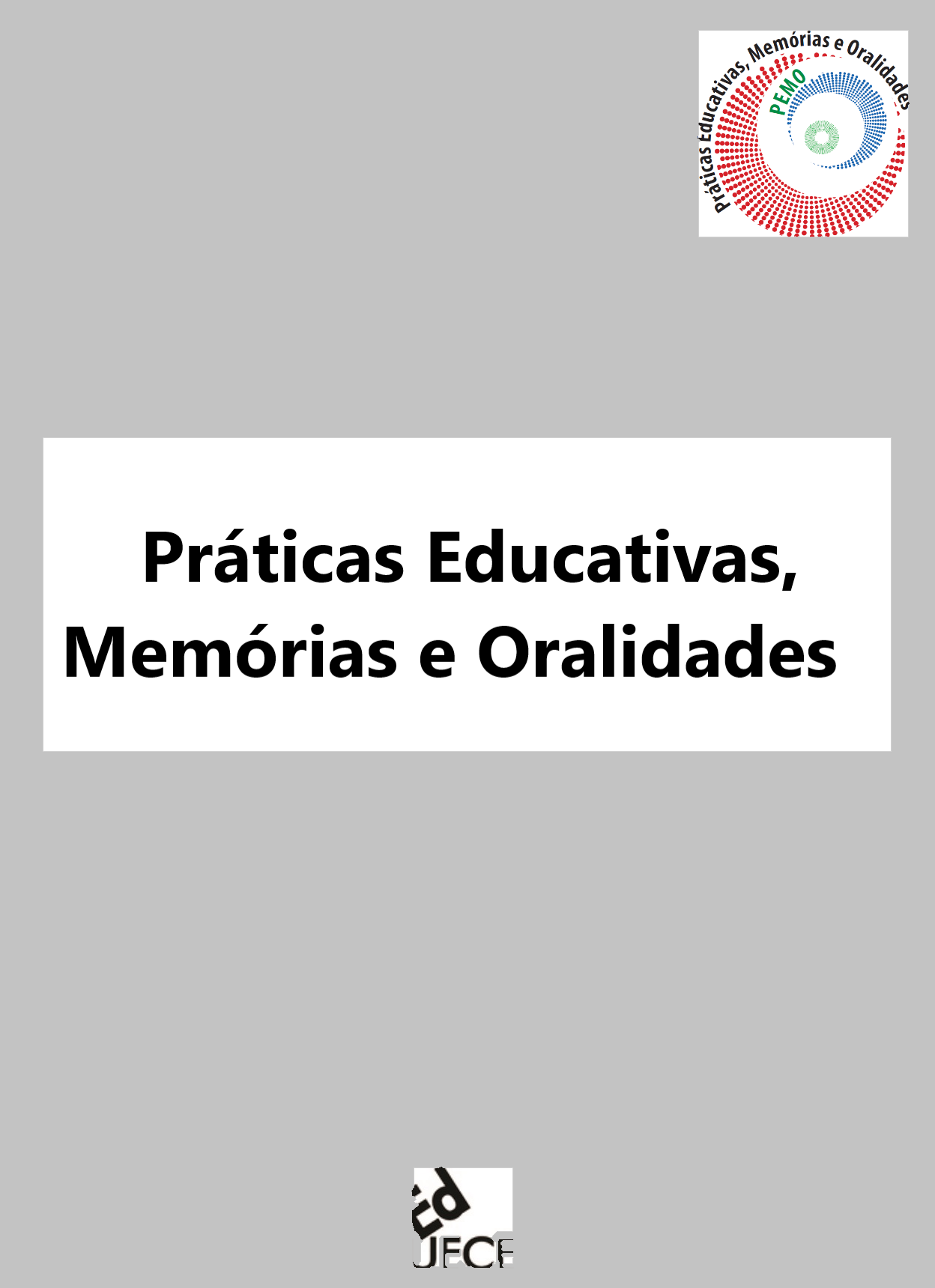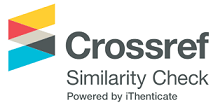Emotional self-regulation and affective states of Stricto Sensu graduate students
DOI:
https://doi.org/10.47149/pemo.v5.e10621Keywords:
Aspectos emocionais. Estratégias adaptativas. Contexto acadêmico.Abstract
The objective was to identify the levels of adaptation of emotion regulation strategies and the probabilities of association between emotional self-regulation for sadness, joy and anger, and affective states of graduate students. For this, 58 graduate, master and doctoral students from two programs at a Federal University participated, who filled out a characterization questionnaire and the Life Satisfaction, Positive Affect and Assessment of Emotional Regulation Strategies scales. of Adults. Data were analyzed quantitatively, using descriptive statistics with a measure of central tendency, with the help of SPSS 20 software. The results show that, despite the difference between the number of participants per program, students have used satisfactory strategies, since there was no minimum score on any of the subscales – sadness, anger and fear. When associated with the study categories, it was found that Life Satisfaction has a high positive correlation with Joy and positive Affect. In addition, it is clear that students who had a low feeling of satisfaction with life, do not show animation and engagement in everyday activities. The absence of adaptive strategies for negative emotions tends to directly affect the subjects' positive affect and feelings of well-being. It is suggested the development of new studies, with an enlarged sample and that accompany the formative process of the students, in order to understand the influences of the strategies used in the academic performance.
Downloads
References
AZZI, R. G. (2014). Introdução à teoria social cognitiva. Série Teoria Social Cognitiva em contexto educativo. São Paulo: Casa do Psicólogo.
BANDURA, A. (2002). Social Cognitive Theory in Cultural Context. Applied Psychology, 51, 269-290. DOI: https://doi.org/10.1111/1464-0597.00092
BANDURA, A. (2005). Evolution of social cognitive theory. In: SMITH, K. G.; HITT, M. A. (Eds.), Great minds in management. Oxford: Oxford University Press, 9-35.
BANDURA, A. (1991). Social Cognitive Theory of Self-Regulation. 2 ed. Organizational behavior and human decision processes. 50, 248-287. DOI: https://doi.org/10.1016/0749-5978(91)90022-L
BANDURA, A. (1999). Social cognitive theory: na agentic perspective. DOI: https://doi.org/10.1111/1467-839X.00024
BANDURA, A. (1986). Social Foundations of Thought and Action: A Cognitive Social Theory. Englewood Cliffs: New Jersey.
BANDURA, A.; AZZI, R. G.; POLYDORO, S. (2008). Teoria Social Cognitiva: conceitos básicos. Porto Alegre: Artmed.
BANDURA, A. (1998). Health promotion from the perspective of social cognitive theory. Psychology and Health, 13, 623-649. DOI: https://doi.org/10.1080/08870449808407422
BANDURA, A.; CAPRARA, G. V.; BARBARANELLI, C. (2003). Role of affective selfregulatory efficacy in diverse spheres of psychosocial functioning. Child Development, 74, 3, 769-782. DOI: https://doi.org/10.1111/1467-8624.00567
BATISTA, J. B. V. et al. Transtornos mentais em professores universitários: estudo em um serviço de perícia médica, 2016. DOI: https://doi.org/10.9789/2175-5361.2015.v7i5.119-125
BORTOLETTO, D.; BORUCHOVITCH, E. (2013). Estratégias de Aprendizagem e de Regulação Emocional de Estudantes de Pedagogia. Ribeirão Preto: Paidéia. 23, 55, 235-242. DOI: https://doi.org/10.1590/1982-43272355201311
BORUCHOVITCH, E.; BORTOLETTO, D. (2010). Regulação emocional: Conceituação e instrumentos de medida. In A. A. A. Santos, F. F. Sisto, E. Boruchovitch, & E. Nascimento (Eds.), Perspectivas em Avaliação Psicológica. São Paulo, SP: Casa do Psicólogo, 271 – 292.
BRANDTNER, M; BARDAGI, M. (2009). Sintomatologia de depressão e ansiedade em estudantes de uma universidade privada do Rio Grande do Sul. Gerais. Juiz de Fora: Rev. Interinst. Psicol. , v. 2, n. 2, p. 81-91.
BUSSAB, W.O.; MORETTIN, P.A. (2013) Estatística Básica. 8.ed., São Paulo: Editora Saraiva.
BZUNECK, J. A.; BORUCHOVITCH, E. (2016). Motivação e Autorregulação da Motivação no Contexto Educativo. Psicologia: Ensino & Formação, 7, 2, 73-84. DOI: https://doi.org/10.21826/2179-58002016727584
CAPRARA, G.; VECCHIONE, M.; BARBARANELLI, C.; ALESSANDRI, G. (2012). Emotional Stability and Affective Self-regulatory. Efficacy Beliefs: Proofs of Integration between Trait Theory and Social Cognitive Theory. European Journal of Personality. DOI: https://doi.org/10.1002/per.1847
CRUVINEL, M.; BORUCHOVITCH, E. (2010). Regulação Emocional de Estudantes: A construção de um instrumento qualitativo. Maringá: Psicologia em Estudo, 15, 2, 537-545. DOI: https://doi.org/10.1590/S1413-73722010000300011
CRUVINEL, M.; BORUCHOVITCH, E. (2019). Como promover a autorregulação emocional de crianças e adolescentes no contexto educacional. IN: BORUCHOVITCH, E.; GOMES, M. A.M. (org). Aprendizagem autorregulada: como promovê-la no contexto educativo? Petrópolis, Rio de Janeiro: Editora Vozes.
DAMÁSIO, A. R. (1996). O erro de Descartes: emoção, razão e cérebro humano. São Paulo: Companhia de Letras.
DIENER, E. ; EMMONS, R. A. ; LARSEN, R. J. ; GRIFFIN, S. (1985). The Satisfaction With Life Scale. Journal of Personality Assessment, 49, 1, 71-75. DOI: https://doi.org/10.1207/s15327752jpa4901_13
DUFFY, R. D.; LENT, R. W. (2009). Test of a social cognitive model of work satisfaction in teachers. Journal of Vocational Behavior, 75, 2, 212-223. DOI: https://doi.org/10.1016/j.jvb.2009.06.001
FÁVERO, L.; BELFIORE, P.; SILVA, F.; CHAN, B. (2009). Análise dos Dados: modelagem multivariada para tomada de decisões. Rio de Janeiro: Elsever.
FRIED, L. J. (2010). Uso de estratégias de regulação de emoções e motivação na sala de aula do ensino médio. Tese de doutorado. Universidade da Austrália Ocidental.
GARBER, J.; WALKER, L. S.; ZEMAN, J. (1991). Somatization symptoms in a community sample of children and adolescents: Further validation of the Children’s Somatization Inventory. Psychological Assessment, 3, 588–595. DOI: https://doi.org/10.1037/1040-3590.3.4.588
GARNEFSKI, N.; KRAAIJ, V.; SPINHOVEN, P. (2001). Negative Life Events, Cognitive Emotion Regulation, and Emotional Problems. Personality and Individual Differences, 30, 1311-1327. DOI: https://doi.org/10.1016/S0191-8869(00)00113-6
GATTI, B. A. (2004). Estudos quantitativos em educação. São Paulo: Educ. Pesqui., 30, 1, 11-30. DOI: https://doi.org/10.1590/S1517-97022004000100002
GRAEFF, F.G. et al. (2003). Farmacologia da ansiedade experimental humana. Ribeirão Preto: Braz J Med Biol Res, 36, 4, 421-432. DOI: https://doi.org/10.1590/S0100-879X2003000400003
GROSS, J.J.; JOHN, O.P. (2003). Diferenças individuais em dois processos de regulação emocional: Implicações para afeto, relacionamentos e bem-estar. Jornal da Personalidade e Psicologia Social, 85, 2, 348-362.
GROSS, JAMES J. (1998). The Emerging Field of Emotion Regulation: An Integrative Review. Review of General Psychology, 2, 5, 271-299. DOI: https://doi.org/10.1037/1089-2680.2.3.271
GROSS, JAMES J. (2008). Emotion Regulation. IN: LEWIS, J; BARRETT, L. F. Handbook of Emotions. Nova York: Guildford, 497-512.
GUIMARÃES, F.S. (2000). Escalas analógicas visuais na avaliação de estados subjetivos. In: GORENSTEIN; C. ANDRADE, LHSG; ZUARDI, AW. Editors. Escalas de Avaliação Clínica em Psiquiatria e Psicofarmacologia. São Paulo: Lemos Editorial, 71 – 87.
KOPP, C. B. (1989). Regulation of distress and negative emotions: A developmental view. Developmental Psychology, 25, 3, 343-354. DOI: https://doi.org/10.1037/0012-1649.25.3.343
KLINE, P. (1986). The Handbook of Psychological Testing. London: Routledge, 2.ed.
LENT, R. W., NOTA, L., SORESI, S., GINEVRA, M. C., DUFFY, R. D., & BROWN, S. D. (2011). Predicting the job and life satisfaction of Italian teachers: Test of a social cognitive model. Journal of Vocational Behavior, 79, 1, 91–97. DOI: https://doi.org/10.1016/j.jvb.2010.12.006
MAGALHÃES, A. (2013). O código de Ekman o cérebro, a face e a emoção. Porto: Feelab Science Books.
MAROCO, J. (2007). Análise Estatística com a Utilização do SPSS. 3.ed., Lisboa: Lisboa.
NINA, K. C. F. (2015). Fontes de autoeficácia docente: Um estudo exploratório com professores de educação básica. Dissertação de mestrado em Universidade Federal do Pará, Núcleo de Teoria e Pesquisa do Comportamento, Programa de Pós-graduação em Teoria e Pesquisa do Comportamento. Brasil.
PESTANA, M.H.; GAGEIRO, J.N. (2005). Análise de Dados para Ciências Sociais: A complementaridade do SPSS. 4.ed., Lisboa: Edições Sílabo.
PLANALP, S. (1999). Communicating Emotion: Social, Moral and Cultural Process. Cambridge: Cambridge University Press. DOI: https://doi.org/10.1017/CBO9781316257012
RAMOS, E.M.L.S; ALMEIDA, S.S.; ARAÚJO, A.R. (Orgs.). (2008). Segurança Pública: Uma abordagem Estatística e Computacional. Belém: Editora Universitária EDUFPA, v.10, p.1010.
RAMOS, M. F. H. (2015). Modelo Social Cognitivo de Satisfação no Trabalho e Eficácia Coletiva: Percepções sobre a docência. Belém. 239 p. Teses. Universidade Federal do Pará, Núcleo de Teoria e Pesquisa do Comportamento, Programa de Pós-graduação em Teoria e Pesquisa do Comportamento.
SANCHEZ, C. N. M.; GOUVEIA JUNIOR, A. (2011). O teste da simulação do falar em público não gera ansiedade em adolescentes surdos ou ouvintes. São Paulo: Rev. bras. ter. comport. Cogn., 13, 2, 21-32. DOI: https://doi.org/10.31505/rbtcc.v13i2.451
SANTOS, D.; PRIMI, R. (2014). Desenvolvimento socioemocional e aprendizado escolar: uma proposta de mensuração para apoiar políticas públicas. São Paulo: Instituto Ayrton Senna.
SCHUNK, D. H. (2012). Learning theories: an educational perspective. 6° ed. Boston, MA: Pearson, 117 – 163.
SROUFE, L. A. (1982). The organization of emotional development. Psychoanalytic Inquiry, Minneapolis: University of Minnesota, 575-599. DOI: https://doi.org/10.1080/07351698209533421
ZIMMERMAN, B. J. (1989). A Social Cognitive View of Self-Regulated Academic Learning. Journal of Educational Psychology, 81, 3. DOI: https://doi.org/10.1037/0022-0663.81.3.329
ZUARDI, A. W.; COSME, R. A; GUIMARÃES, F. S. (1993). Effects of ipsapirone and cannabidiol on human experimental anxiety. Journal of Psychopharmacology, 7, 82-88. DOI: https://doi.org/10.1177/026988119300700112
Published
How to Cite
Issue
Section
License
Copyright (c) 2023 Jamille Gabriela da Silva Torquato , Maria Roberta Miranda Furtado, Emmanuelle Pantoja Silva Silva, Edson Marcos Leal Soares Ramos, Maély Ferreira Holanda Ramos (Autor)

This work is licensed under a Creative Commons Attribution 4.0 International License.













